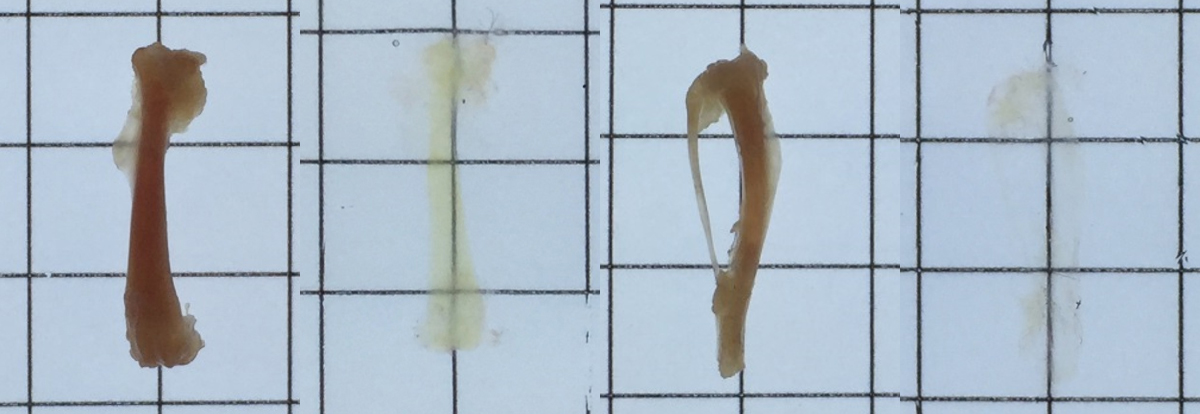

Chunks of fat are something you want in your steak, not your bloodstream. But that’s what happened to a 45-year-old woman after she got liposuction: About three days after her surgery, she landed in the intensive care unit, with doctors scrambling to figure out why she couldn’t breathe or think properly. A tiny glob of fat lodged in a blood vessel turned out to be the cause of all the commotion.
That globule led to something called fat embolism syndrome, or FES, which is quite far down on the list of likely complications from such a procedure. As far as the patient’s physicians can tell, hers is the first ever case of liposuction-related FES in the United Kingdom, where they published a summary of her condition in BMJ Case Reports.
As a morbidly obese woman, she had opted for liposuction as a way to increase her mobility so she could start losing weight by other means. Instead, she spent two weeks in the hospital recovering from the FES, though at her two month follow up her physicians reported that she was already making progress on her fitness goals. A liposuction patient contracting FES is an anomaly, but FES itself isn’t unheard of—it’s just common in a different set of people.
What is FES?
Like the fat-bergs that clog our sewers, clumps of fat cells can block up veins and arteries. But unlike fat-bergs, there’s no one who can go break up cells inside of us. A fat embolism that breaks free and drifts through the blood can get lodged almost anywhere in the body, and that’s what causes FES.
It’s a difficult problem to diagnose—in part because it’s so rare, but also because it causes such a wide range of symptoms. Embolisms of all kinds (blood clots are the most common) prompt air supply problems, since they’re stopping blood flow and therefore preventing oxygen delivery. If the embolism happens in the lungs or near the brain, that’s especially problematic. Any part of the body that loses blood supply will stop functioning pretty quickly. Fat embolisms are unusual in that they’re proinflammatory, meaning they trigger the body’s inflammatory reaction. So free-floating fat clumps don’t just stick to themselves; they also gather platelets that add to the blockage.
There’s also a theory that as fat emboli get broken down, they release free fatty acids, which in turn cause a lot of the organ failure associated with FES. Free fatty acids can be toxic and lead to tissue damage, and that damage prompts a cascade of other proinflammatory responses. Small, controlled inflammation is how your body heals itself, but a sudden flare up can overtax the whole system.
The combination of all these responses makes FES potentially fatal, especially since it’s hard to diagnose.
Fat embolisms are actually quite common
Drifting fat globules aren’t all that rare, it’s just the full-on syndrome that’s unusual. Fat emboli happen regularly, but not in liposuction patients—in people with broken bones. Bone marrow, which fills the center of your larger bones, is made up mostly of fat cells. When you get a significant fracture, those fat cells can become dislodged and are now free to float away.
Most of the time, these little emboli don’t cause any problems. They get broken up as they move, and most people never realize they have them. Only a small fraction turn into FES, though your chances of having serious complications go up if a major fracture stays open for a long period of time. Setting the bone and re-encapsulating the fat cells helps contain the problem.
So should I be worried about getting liposuction?
Like any surgery, liposuction isn’t without risks. But you shouldn’t be too worried about getting FES. Problems with anesthesia, heart complications, and wound infection all rank much higher up on the list of reasons not to get liposuction. That’s doubly true if you’re getting the procedure for purely cosmetic reasons, since you’re taking on a risk for an unnecessary operation. Liposuction to aid weight loss and mobility are a little different, since they can be helpful to patients who otherwise have trouble moving around.
If you just had liposuction (or just broke a bone) and are still concerned, you can watch for some of the common symptoms of FES: trouble breathing, confusion or drowsiness, and a rash of tiny round spots. If you note those symptoms, it might be worth calling your doctor. People with FES can also experience more serious nervous system issues, like seizures or even slipping into a coma, or total respiratory failure. Any of those conditions, it should go without saying, warrant a trip to the emergency room.
Either way, FES shouldn’t be your main concern if you’re considering liposuction. Or, for that matter, if you break a hip. It’s best not to waste energy worrying about something this unlikely, especially when you should be focusing on recovering.







